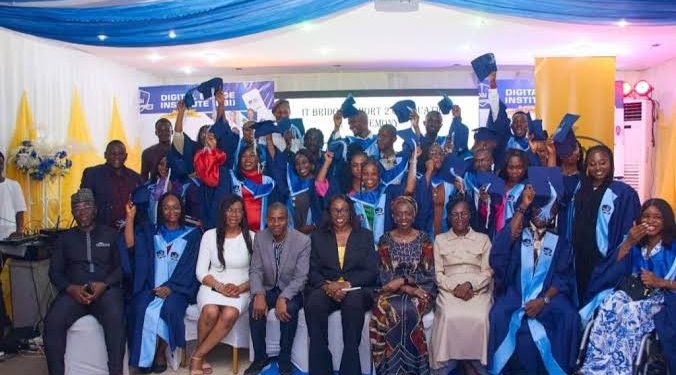The Federal Government’s Digital Bridge Institute (DBI) has made significant strides in bridging Nigeria’s digital divide by graduating its second cohort of persons with disabilities (PWDs) from a nine-month IT training programme. A total of 49 PWDs—24 from DBI’s Lagos campus and 25 from its Kano campus—successfully completed the training, which equipped them with critical digital skills and industry-recognized certifications.
The institute’s IT Bridge Academy, designed to meet the unique needs of PWDs, offers specialized support and tailored curricula to help participants acquire the skills necessary for success in the modern digital economy. This initiative was carried out in partnership with Sightsavers International and is the second of its kind in Africa, following a similar programme in Kenya.
DBI’s goal is to break down barriers, combat exclusion, and create opportunities for PWDs to thrive in the technology sector. Speaking at the Lagos graduation ceremony, DBI’s President and CEO, David Daser, represented by the institute’s Head of Special Duties, Viola Askia-Usoro, highlighted that the event was not just about completing a course but about transforming lives and opening doors to new opportunities in the digital world.
Daser addressed the challenges faced by PWDs, such as stigma, discrimination, and limited access to training, and emphasized that initiatives like the IT Bridge Academy are key to leveling the playing field. He encouraged the graduates to become advocates for inclusion and accessibility in the digital world, saying, “You are now ambassadors for change. Your contributions will inspire others and show what is possible when barriers are dismantled.”
The Cohort 2 Class Governor, Amos Adegboyega, shared the difficulties the graduates faced during the programme, which they overcame with the support of instructors and stakeholders. “They gave us hope that there are abilities in disability to make us achieve our dreams,” he remarked.
DBI reaffirmed its commitment to expanding the IT Bridge Academy, aiming to reach even more PWDs and ensure they are included in Nigeria’s digital transformation.










